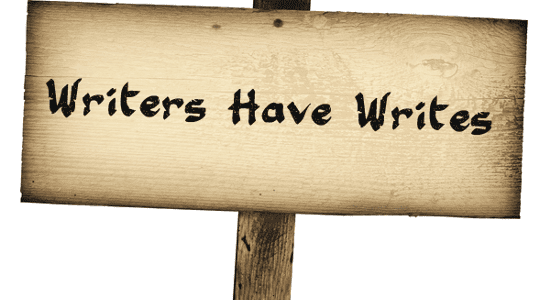Remember when I wrote about “write what you know” and explained that it is sometimes a good idea to write what you don’t know but write about it like you do? Well, what exactly can a writer write about and what is off-limits? Can I write about genocide? Can I write about bullying? Can I write about war? These are questions writers may ask themselves. What about a white writer writing about black people? Is that allowed? Some of these topics a writer could be sued for choosing, but they could still win their case. So, what am I getting at? What’s out of bounds for a writer?
A big issue these days is Aboriginal voice and how Aboriginals need their own voice not someone else acting as their voice. So if a writer wanted to write a book based on the Indigenous, and was being accused of stealing the Aboriginal voice, well, it would be very hard for her to write about Aboriginals if the Aboriginal community wouldn’t even speak to her. Of course, she could still write the book. However, with the writer not being able to speak to the Aboriginal community about their views on the topic, it could be very crippling for the writer and her book. I mean, if you wrote a story about Aboriginal culture and never spoke to a Native in your life, your book would be crap. Writers write from experience and others’ experiences. A part of research for writers is mainly just talking to people. Hey, you could all be writers, couldn’t you? Well, yes.
“A writer is a person who writes.” —Arnie Achtman
And never forget that quote. Some people don’t always seem to give writers support and therefore it can be difficult for writers to get themselves known. I remember when I wanted to be a writer. I told my best friend’s dad and he scoffed at me: “Good luck.”
Thanks, I’ll need it. It’s like someone telling you they want to be a philosopher. OK, so what are you going to do with that? Teach philosophy? That’s all you really can do with that degree. When I say, “I’m going to be a writer,” and I get that question, I answer with: “Write.”
Takes people by shock because I haven’t really answered the question but more avoided it and shown that I really want to write. This is where people can get frustrated with you and mutter to themselves, “Right, writers are crazy.” Well maybe we are and we also may be a bit misunderstood as well.
Writers like any profession though, need support. An architect needs support of her layout for the next structure, a doctor needs support and trust that performing surgery is OK, a rockstar needs to know that when he goes out onstage, he’s not going to be pelted with oranges as soon as he appears. Well, sorry Mr. Rockstar, but that could still happen. But with support also comes voice and that’s really the issue here. I was reading an essay titled “The Disempowerment of First North American Natives Peoples” written by Jeannette C. Armstrong, where she writes about the Aboriginal voice and how it shouldn’t be ignored or cast aside. An important note to make is that yes, you should be allowed to write about whatever you want, but what about write to voice? Armstrong believes that non-Aboriginal people need to stop writing for Aboriginal people. Let the Aboriginals speak and write, don’t speak and write for them. She has a point, actually. She also points out that some claim that when the non-Aboriginal composes a piece that argues for the Aboriginal community, the non-Aboriginal’s argument would then be freedom of speech or the freedom to write, really. Armstrong considers that argument to be bullshit, which I sort of have to agree with. Write what you please but at least consider others as well. I don’t believe a writer who’s writing for the Aboriginal people is trying to take away the Aboriginal voice, nor does it seem that Aboriginals don’t have the permission or strength to write about these pressing issues. Think of these non-Aboriginal writers as support for the Aboriginal culture. Well, Armstrong argues this premise as wrong and that, really, those writers are not allowing the Aboriginals to express themselves because the non-Aboriginal is doing it for them. It’s like a friend stepping in and beating up the bully that beats you up. Shouldn’t you be beating up the bully, not your friend? It was your battle, not his. Again, Armstrong has a point. What’s the message here? Consider voice, just consider it. You don’t have to always write with your voice, but just think about it the next time you pick up your pen and paper.
What about writing from the Aboriginal perspective, though? Well, you see, that’s a bit different. If we want to believe that non-Aboriginal writers are stealing the voice of the Aboriginal people, we might also want to believe that these writers are also stealing stories as well. It’s not stealing, it’s “borrowing.” You have a story in mind but the community is not allowing you to write that story. Let’s pretend I want to base my next novel in Afghanistan and involve the Taliban. I go to Afghanistan to find out that no one will talk to me. Sure, I have the scenery and yes I have the films I’ve seen on Afghanistan but it’s not the same and I then decide to not write the book. Writers need support from the community; the community they are writing about. Without it, well, we writers can still be daring and write it, but risk our novel, book of poems, book of essays, what have you, to not be bought. Writers take risks though, so maybe with that knowledge I might still consider writing about the Taliban. The point is to consider write to voice, but to also know when that voice is not being used. I have a story! Let me write it! Stop telling me I can’t! So write the story and see what happens. Will the world explode in anger or applause? Will the world just be passive and not even care? Will the world and anyone in it ever speak to you again? Take risks, writers. If you need a friend, I’m always here. I’m your support. Never forget it.





